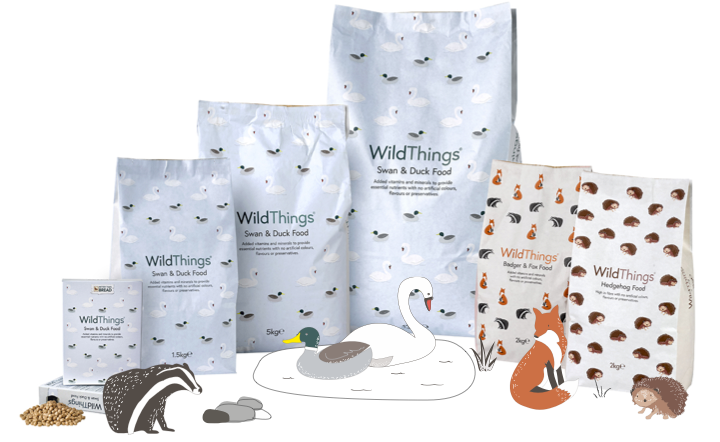The secret lives of swans
2nd October 2020

Here at WildThings, we know how lucky we are to live in a country with such diverse wildlife. From hedgehogs, to foxes, to badgers, to birds, and more, it seems there’s a cute critter waiting around every corner! We’re willing to bet that when it comes to swans, you probably don’t know much about them. We take a closer look at their secret lives and find out more about these stunning creatures.
Swans believe in soulmates
Once a swan has met its significant other, it will mate for life. The courtship ritual is truly something to behold; the two swans face each other, ruffle their feathers, lift their wings and bow their heads simultaneously. Once this phase is over, they tend to stick together for the rest of their days. Having a long-term mate is highly beneficial in terms of survival; swans tend to eat more/better when they work together as a team and they also work together to avoid potential predators.
Swans have great memories
Just like elephants, swans never forget. They will remember if you have been kind to them…or not so kind! Always keep this in mind when you come across a swan, particularly if you regularly pass the same one on your morning commute. They’re beautiful, but they don’t like being messed with, that’s for sure!
Swans can fly
Many people don’t know that swans can fly. They can actually fly as fast as 60mph and many migrate to warmer climates during the winter, as they prefer bodies of water that don’t freeze. The next time you see a blurry white UFO, you never know, it could be a swan seeking a warmer habitat!
Swans have a diverse diet
Swans eat a range of food, including: algae, waterweed, pondweed, coontail, wild celery, wild rice and muskgrass. They also eat smaller creatures when they can find them in their habitat, such as fish, mollusks, frogs and insects. Many people feed swans bread, but it is important to remember that bread isn’t good for a swan’s digestive system. You can buy purpose made swan and duck food right here at WildThings.
Swans aren’t fussy where they sleep
These majestic creatures will sleep either on land or in water, as long as they’re in their natural habitat. They tend to stand on one leg and float in the water while they rest, which doesn’t sound comfortable for us humans, but for them it’s the ideal position for a nice long sleep!
Swans can be a tad on the aggressive side
Swans are naturally gentle creatures but that doesn’t mean they won’t stand up for themselves when crossed! They have been known to act aggressively when they come across threatening behaviour and may even be able to break a human arm with their powerful wings. You definitely want to approach with caution and be respectful of their boundaries.
Swans live for a long time
For an animal of their size, swans live for a very long time. It is not uncommon for them to live for over 20 years and some species even live as long as 30 years! They tend to choose their life-long mate at around 2-4 years old, so that’s a long time to be spending with a significant other. In this day and age, it’s even longer than some human relationships!
Want to keep up to date with all things WildThings? Follow us on social today!


